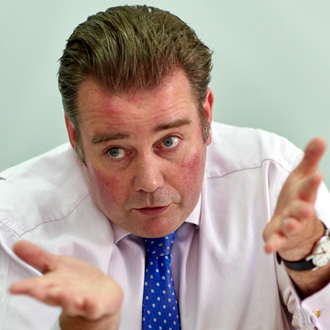GMC is using right to appeal tribunal decisions ‘appropriately’, says chief

The GMC has defended its decision to take its own tribunal to the High Court, saying its track record proves it is using the right to appeal ‘appropriately’.
The regulator has been successful in 80% of appeals against the Medical Practitioner Tribunal Service since obtaining the right in 2015, and in 100% of appeals regarding fitness to practise.
Chief executive Charley Massey argued, in a letter to House of Commons health committee chair Dr Sarah Wollaston, that ‘this implies we are using our right of appeal appropriately’.
The letter, which comes in response to a list of clarifications requested by Dr Wollaston, also set out that the GMC does not pursue appeals unless there is ongoing concern about a doctor’s fitness to practise.
Mr Massey said: ‘If these concerns are not evident, we do not take such an appeal forward.’
But Mr Massey went on to clarify that the GMC did take into account ‘wider system pressures’ as a factor but that – as in the case of Dr Bawa-Garba – it was ‘important to note that convictions for gross negligence manslaughter are not the result of everyday mistakes’.
He added: ‘It is regrettable that in the wider reporting of this specific case, the two have often been conflated.’
Dr Wollaston had asked the GMC to clarify ‘what considerations the GMC takes into account when deciding that an appeal against and MPTS decision is merited’.
In response to the ‘great deal of concern’ from medical professionals in the wake of the Dr Bawa-Garba case, Dr Wollaston also asked Mr Massey to clarify the GMC’s ‘position on reflective practice, and in particular its implications for possible criminal or fitness to pratise cases’.
She also asked ‘how the GMC is ensuring that the vital role of reflective practice in ensuring patient safety is maintained’.
Dr Bawa-Garba’s e-portfolio reflections were not used against her in court, her medical defence organisation has said, despite ‘wide misreporting’ that they were.
But Pulse has learned that some reflections from Dr Bawa-Garba – but not from her e-portfolio – were included in evidence presented to the trial, although it is unclear quite how much of an influence this played in the final manslaughter verdict.
Mr Massey said that although the GMC ‘never asks doctors to provide their reflective statements if we are investigating a concern’, e-portfolios are not subject to legal privilege under UK criminal law and ‘as a result, these documents might be requested by a court if it is considered that they are relevant to the matters to be determined in the case’.
He added: ‘We are committed to ensuring the vital role of reflective practice in ensuring patient safety is not just maintained, but enhanced. I appreciate that some doctors have concerns about the role that it could have in legal or other proceedings against them.
‘With this in mind, I publicly reaffirmed last week our commitment, as part of a wider discussion with the BMA, that we will never ask doctors to provide their reflective statements if investigating concerns about them. In partnership with the BMA, Royal Colleges and others we will be taking steps to ensure this understanding is fully embedded across the profession.’
The review will bring together health professional leaders, defence bodies, patients and legal and criminal justice experts from across the UK, and will focus on doctors’ reflections and support for doctors in raising concerns.
Health secretary Jeremy Hunt has also announced a rapid review into the application of gross negligence manslaughter charges in medicine following the case, due to report in April.









